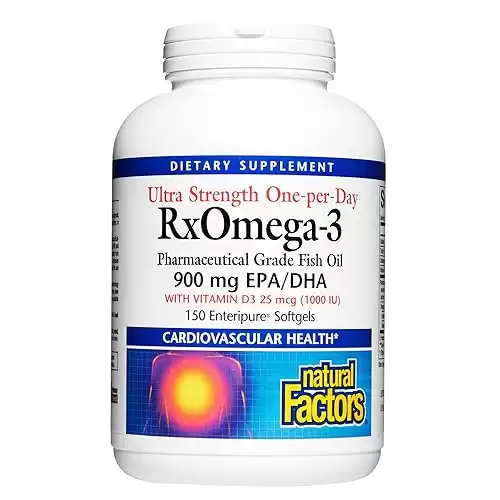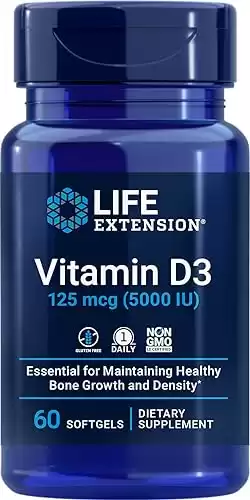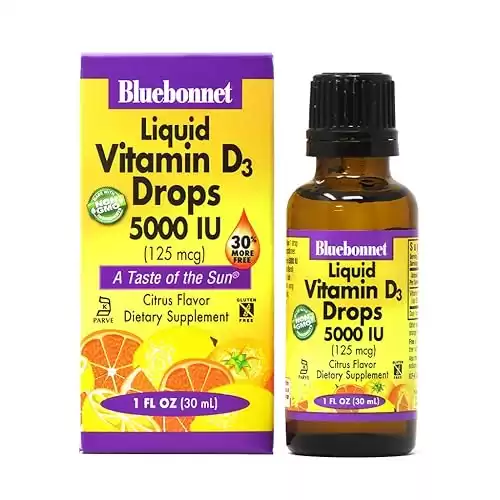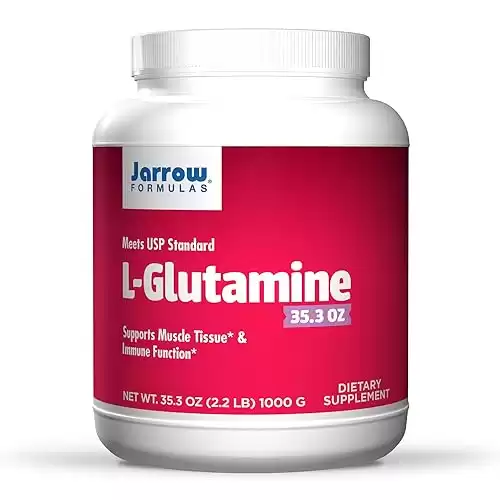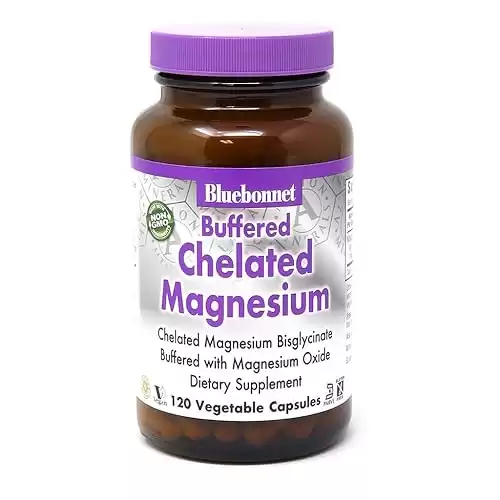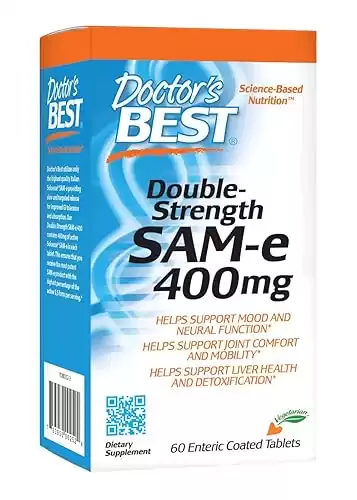The Top 15 Natural Antidepressants: That Are Totally Underestimated
Depression affects over 16 million people in the United States alone, and it’s one of the biggest causes of disability. (Yeung et al., 2018) Most people are unaware that having no desire to do things you used to do or having a lack of energy can result from depression.
Major Depressive Disorder or clinical depression is the more commonly known form of depression, and women are two times more likely to struggle with Major Depressive Disorder than men. (Kring & Johnson, 2021)

Table of Contents
Some Symptoms of Depression:
- Mood swings
- General Discontent
- Agitation
- Irritability
- Social Isolation
- Excess Sleepiness
- Excess Hunger
- Fatigue
- Lack of Concentration
- Thoughts of Suicide
Some people go undiagnosed for extended periods because they may not have more pronounced symptoms such as excessive sleepiness. Many people struggle with high-functioning depression, where they seem to be “normal” because they can function in society rather effectively.
Some Examples of Natural Antidepressants:
- Exercise
- Sunshine
- Lavender
- Passionflower
- Saffron
- Fish Oil
- Vitamin D
- L-Glutamine
- Rhodiola Rosea
- Prebiotics and Probiotics
- Inositol
- Magnesium
How Do Antidepressants Work?
Antidepressants work by modulating neurotransmitter activity in the brain. Antidepressants reduce feelings of depression; however, they often come with the risk of many different side effects such as insomnia, agitation, shakiness, anxiety, etc.
15 Natural Antidepressants
1. Exercise
Exercise is not something you can take, but it is an underrated natural antidepressant. Research shows it is as effective as antidepressant medication combined with psychotherapy. Exercise helps with body image, quality of life, and an individual’s ability to cope with stress. (Knapen et al., 2015)
2. Sunshine
The sun is an excellent source of white light which can help reduce symptoms of depression. A study showed that individuals given white light therapy for 4-6 weeks had lower depression scores. (Sit et al., 2018)
In addition, sunlight helps your body produce more Vitamin D, which is actually a hormone. You can also consume foods that are higher in Vitamin D, to increase your levels of the vitamin and help alleviate symptoms of depression.
3. Lavender
Lavender is an everyday essential oil, a fragrant, concentrated oil with purported therapeutic properties. For example, a study revealed that lavender essential oil inhalation lowered corticosterone levels in the body. Corticosterone is a precursor to aldosterone, a hormone that regulates blood pressure.
Organic plants are raised without pesticides and are not genetically modified. If this concerns you, look for an organic lavender oil.
4. Passionflower
Passionflower is a vine that grows in southeastern United States and Central America. It is typically used as a sedative and has been taken in doses of 800 mg safely for up to 8 weeks. (U.S. Department of Health and Human Services.)
Passionflower works by increasing the neurotransmitter GABA to help you be calm and relaxed. It also works great for depression by helping you sleep better and reducing your stress response.
5. Saffron
According to research, saffron increases the production of serotonin, your “happy hormone,” and it alleviates symptoms of depression. Saffron originates from the flower Crocus sativus and is used to color and flavor foods. (Merriam-Webster.)
Saffron is in supplements such as capsules, or it is found in a tincture form. Tinctures are typically absorbed faster; however, not everyone can stomach the taste of an herbal extract in an alcohol base.
6. Fish Oil
Fish oil contains a type of polyunsaturated fats called Omega-3s that you may be familiar with. There are multiple forms of Omega-3s, but DHA and EPA are the main ones that help reduce inflammation in the body and help with brain development.
DHA, in particular, helps with brain development and mood disorders by protecting the brain from damage due to oxidative stress. Oxidative stress occurs when you are exposed to toxins in your environment, when you eat unhealthy foods, and even when you exercise, leading to a weakened immune system. DHA, along with antioxidants, helps balance out the oxidative stress we endure.
- Ultra Strength RxOmega-3 is a powerful source of omega-3 fatty acids to support healthy nervous and cardiovascular systems
- Each softgel provides 300 mg of DHA to support everyday brain functions and eye health; Also delivers 600 mg of EPA to support a healthy heart and arteries
- Take 1 softgel just once a day; Our targeted delivery system ensures no fishy aftertaste; Non-GMO and free from dairy, gluten, artificial colors, preservatives and sweeteners
- We test for purity and safety, ensuring our blend is free from environmental pollutants like PCBs and mercury; RxOmega-3 surpasses the strictest international standards for quality
- Third-party certified and independently tested for GMOs and over 700 contaminants using advanced technology such as mass spectrometry to ensure purity and potency
EPA works by minimizing inflammation and therefore helping reduce brain inflammation, a common contributor to anxiety and depression. Excessive inflammation in the body can increase the chance of someone struggling with Major Depressive Disorder or MDD. (Beurel et al., 2020)
7. Vitamin D
Vitamin D3 is the recommended form of Vitamin D to increase your Vitamin D levels. Extensive research exists on how Vitamin D works as a great natural antidepressant, showing an association between a lack of Vitamin D in depression sufferers. (Parker et al., 2017)
It is taken in a soft gel or dropper form and is excellent to give to your children as well. In addition, Vitamin D helps support a healthy immune system and energy levels, both of which can be weakened with depression.
- Vitamin D helps get calcium into your bone matrix—the lattice-like structure that gives your bones their strength and rigidity.
- Vitamin D is good for your brain too!
- Vitamin D3 plays a critical role in immune function
- Promotes endothelial health helps maintain already-healthy blood pressure.
- 900 Servings
- 5,000 I.U's per drop
- For Children and Adult-use
- Subtle flavor
- Immune support, mood, energy
To find a suitable dosage for yourself, try a very affordable Vitamin D test to see where your starting point is. Then you may be able to purchase a supplement that is 5,000 IUs, an average dosage for a few months, and retest again to see if you need to adjust your dosage.
A few signs of Vitamin D deficiency include chronic pain, low energy, insomnia, blood sugar imbalances, etc.
Note: Make sure to let your doctor know about your concerns if you have low Vitamin D levels and you are supplementing to increase them.
8. L-Glutamine
L-glutamine is an amino acid, and it is one of the critical nutrients that can help improve your gut health. The enteric nervous system is part of your digestive system. People who struggle with “leaky gut” or other digestive issues can have problems with their gut-brain axis.
L-glutamine works as a natural antidepressant by repairing holes in the gut lining that prevent nutrients from being absorbed. Furthermore, L-glutamine also serves as a natural antidepressant by minimizing inflammation in the gut.
9. Rhodiola Rosea
Rhodiola is an adaptogenic herb. Adaptogens work to create balance in the body by giving you energy if you need it, or they can help with sleep or relaxation. Rhodiola, in particular, alleviates lethargic depression and asthenia. (Iovieno et al., 2011)
This particular adaptogenic herb is known for its neuroprotective, cardioprotective, anti-fatigue, and nootropic benefits. Research shows that Rhodiola reduces burnout feelings, improves mental performance, and is effective against overall generalized anxiety and depression. (Panossian et al., 2010)
Rhodiola comes in a tincture form or veggie capsules.
10. Prebiotics and Probiotics
The reason these two are combined is that prebiotics feed the probiotic strains. If you are unfamiliar with probiotics, they are healthy bacteria in your gut, skin, and other parts of your body. They can diminish from antibacterial soaps, poor diet, medications, stress, etc.
Prebiotics are a form of fiber you consume in your diet that feeds your healthy probiotic gut bacteria.
Examples of these are fructooligosaccharides from fructose, which are calorie-free and are considered soluble fiber. (Sabater-Molina et al., 2009) Galactooligosaccharides are from lactose and human milk and can also help support healthy intestinal bacteria.
These two prebiotics have been shown to help individuals with moderate depression and anxiety if consuming at least 5 grams per day. (Taylor & Holscher, 2020)
11. Inositol
Inositol is a water-soluble B-vitamin, and it is excellent for blood sugar balance, stress, and more. It works effectively as a natural antidepressant by women struggling with Premenstrual Dysphoric Disorder (PMDD). (Mukai et al., 2014)
There are two types of inositol: D-chiro and Myo-inositol. You can find supplements with both for concerns like PCOS. However, the more easily accessible form is typically the D-chiro-inositol.
Myo-inositol was found to be very effective in premenstrual dysphoric disorder, and it also appeared to be effective in mood disorders in general. Individuals with schizophrenia or another mood disorder showed lower Myo-inositol levels than patients without a current or past effective diagnosis. (Chiappelli et. el., 2015)
12. Magnesium
Magnesium is a mineral and an electrolyte, and it is vital for hydration, sleep, anxiety, depression, and more. In addition, magnesium is necessary for over 300 body processes, including blood sugar balance, blood pressure, and our body’s bone remodeling cycle.
Studies have shown that a magnesium deficiency can cause an individual to have personality changes, be agitated, be delirious, insomnia, and more. Magnesium deficiency can result from stress, poor diet, alcoholism, Type 2 diabetes, and certain medications. (Serefko et al., 2016)
Magnesium comes in a powder, pill, or liquid form. All three are effective; however, the powder or liquid forms may be absorbed better and faster with the growing concern of gut issues.
13. Vitamin B-12 & Folate
A B-complex supplement is a combination of Vitamin B1 (Thiamin), Vitamin B2 (riboflavin), Vitamin B3 (niacin), Vitamin B5 (pantothenic acid), Vitamin B7 (biotin), Vitamin B12 (methylcobalamin), and folate (MTHF).
Most people take these vitamins together because there are so many forms of Vitamin B, and it is for stress. When your body is stressed, B vitamins, along with other nutrients, become depleted.
Research demonstrates that Vitamin B12 and folate deficiency can cause disorientation, psychosis, and depression. (Petrie & Ban, 1985) B vitamins, especially Vitamins B12 and folate, are often deficient in people who struggle with alcoholism.
Furthermore, high homocysteine levels occur in individuals who struggle with depression. Vitamin B12 and folate/folic acid (MTHF) help lower homocysteine levels.
High levels of homocysteine occur in patients struggling with depression. (Esnafoglu & Ozturan, 2020) Homocysteine is a result of natural body processes. High amounts of homocysteine increase the risk for many cardiovascular diseases such as coronary artery disease and cerebrovascular disease. (Maron & Loscalzo, 2006)
14. SAM-e
SAM-e (S-adenosylmethionine) is a natural compound found in every cell of your body. Studies show that SAM-e has been very effective at minimizing symptoms of depression in more mild cases, according to the study. (Sarris et al., 2020)
- Doctor's Best SAMe Double Strength is proven to enhance mood and promote cognitive health
- SAMe is essential for the healthy metabolism of the major brain transmitters dopamine, serotonin, and norepinephrine
- SAMe has been proven to promote joint comfort and mobility and supports liver health and detoxification
- SAMe's effectiveness has been proven with 18 controlled human trials published over 40 years
15. St. John’s Wort
St. John’s Wort (Hypericum perforatum L.) is known for its ability to work as a natural antidepressant.
A study showed that patients had similar results when taking St. John’s Wort for Major Depressive Disorder (MDD) compared to tri- or tetracyclic antidepressants and SSRIs. It gave patients great results, and it also resulted in fewer adverse side effects than the medications. (Linde et al., 2008)
Don’t Give Up
When choosing to take any of these natural antidepressants, remember that it takes time to replenish your body when you have been deficient or severely stressed for an extended time. Stress plays a significant role in your body’s ability to function correctly.
Stress will always exist; you have to work to become better at dealing with it actively. However, with the combination of a balanced diet, exercise, social interaction, talk therapy, and natural antidepressants, you could stand a chance at improving your overall mental health with limited side effects.
If you have a hard time dealing with stress, I highly recommend talking to a therapist. Therapists are great at helping you come up with strategies to better cope with stress, help you create better habits, and work to make you feel understood and heard.
References:
Beurel, E., Toups, M., & Nemeroff, C. B. (2020). The Bidirectional Relationship of Depression and Inflammation: Double Trouble. Neuron, 107(2), 234–256. https://doi.org/10.1016/j.neuron.2020.06.002
Chiappelli, J., Rowland, L. M., Wijtenburg, S. A., Muellerklein, F., Tagamets, M., McMahon, R. P., Gaston, F., Kochunov, P., & Hong, L. E. (2015). Evaluation of Myo-Inositol as a Potential Biomarker for Depression in Schizophrenia. Neuropsychopharmacology: official publication of the American College of Neuropsychopharmacology, 40(9), 2157–2164. https://doi.org/10.1038/npp.2015.57
Esnafoglu, E., & Ozturan, D. D. (2020). The relationship of severity of depression with homocysteine, folate, vitamin B12, and vitamin D levels in children and adolescents. Child and adolescent mental health, 25(4), 249–255. https://doi.org/10.1111/camh.12387
Iovieno, N., Dalton, E. D., Fava, M., & Mischoulon, D. (2011). Second-tier natural antidepressants: review and critique. Journal of affective disorders, 130(3), 343–357. https://doi.org/10.1016/j.jad.2010.06.010
Knapen, J., Vancampfort, D., Moriën, Y., & Marchal, Y. (2015). Exercise therapy improves both mental and physical health in patients with major depression. Disability and Rehabilitation, 37(16), 1490–1495. https://doi.org/10.3109/09638288.2014.972579
Kring, A. M., & Johnson, S. L. (2021). Abnormal psychology: The science and treatment of psychological disorders. Wiley. Retrieved November 27, 2021.
Liang, S., Wu, X., Hu, X., Wang, T., & Jin, F. (2018). Recognizing Depression from the Microbiota?Gut-Brain Axis. International journal of molecular sciences, 19(6), 1592. https://doi.org/10.3390/ijms19061592
Linde, K., Berner, M. M., & Kriston, L. (2008). St John’s wort for major depression. The Cochrane database of systematic reviews, 2008(4), CD000448. https://doi.org/10.1002/14651858.CD000448.pub3
Maron, B. A., & Loscalzo, J. (2006). Homocysteine. Clinics in laboratory medicine, 26(3), 591–vi. https://doi.org/10.1016/j.cll.2006.06.008
Merriam-Webster. (n.d.). Saffron definition & meaning. Merriam-Webster. Retrieved November 28, 2021, from https://www.merriam-webster.com/dictionary/saffron.
Mukai, T., Kishi, T., Matsuda, Y., & Iwata, N. (2014). A meta-analysis of inositol for depression and anxiety disorders. Human psychopharmacology, 29(1), 55–63. https://doi.org/10.1002/hup.2369
Niittynen, L., Kajander, K., & Korpela, R. (2007). Galacto-oligosaccharides and bowel function. Scandinavian Journal of Food & Nutrition, 51(2), 62–66. https://doi.org/10.1080/17482970701414596
Panossian, A., Wikman, G., & Sarris, J. (2010). Roseroot (Rhodiola Rosea): traditional use, chemical composition, pharmacology, and clinical efficacy. Phytomedicine: international journal of phytotherapy and phytopharmacology, 17(7), 481–493. https://doi.org/10.1016/j.phymed.2010.02.002
Parker, G. B., Brotchie, H., & Graham, R. K. (2017). Vitamin D and depression. Journal of affective disorders, 208, 56–61. https://doi.org/10.1016/j.jad.2016.08.082
Petrie, W. M., & Ban, T. A. (1985). Vitamins in psychiatry. Do they have a role?. Drugs, 30(1), 58–65. https://doi.org/10.2165/00003495-198530010-00006
Sabater-Molina, M., Larqué, E., Torrella, F., & Zamora, S. (2009). Dietary fructooligosaccharides and potential benefits on health. Journal of physiology and biochemistry, 65(3), 315–328. https://doi.org/10.1007/BF03180584
Sarris, J., Murphy, J., Stough, C., Mischoulon, D., Bousman, C., MacDonald, P., Adams, L., Nazareth, S., Oliver, G., Cribb, L., Savage, K., Menon, R., Chamoli, S., Berk, M., Ng, C. H., & Byrne, G. J. (2020). S-Adenosylmethionine (SAMe) monotherapy for depression: an 8-week double-blind, randomized, controlled trial. Psychopharmacology, 237(1), 209–218. https://doi.org/10.1007/s00213-019-05358-1
Sit, D. K., McGowan, J., Wiltrout, C., Diler, R. S., Dills, J. J., Luther, J., Yang, A., Ciolino, J. D., Seltman, H., Wisniewski, S. R., Terman, M., & Wisner, K. L. (2018). Adjunctive Bright Light Therapy for Bipolar Depression: A Randomized Double-Blind Placebo-Controlled Trial. The American journal of psychiatry, 175(2), 131–139. https://doi.org/10.1176/appi.ajp.2017.16101200
Serefko, A., Szopa, A., & Poleszak, E. (2016). Magnesium and depression. Magnesium research, 29(3), 112–119. https://doi.org/10.1684/mrh.2016.0407
Taylor, A. M., & Holscher, H. D. (2020). A review of dietary and microbial connections to depression, anxiety, and stress. Nutritional neuroscience, 23(3), 237–250. https://doi.org/10.1080/1028415X.2018.1493808
U.S. Department of Health and Human Services. (n.d.). Passionflower. National Center for Complementary and Integrative Health. Retrieved November 28, 2021, from https://www.nccih.nih.gov/health/passionflower.
Yeung, K. S., Hernandez, M., Mao, J. J., Haviland, I., & Gubili, J. (2018). Herbal medicine for depression and anxiety: A systematic review with assessment of potential psycho-oncologic relevance. Phytotherapy research: PTR, 32(5), 865–891. https://doi.org/10.1002/ptr.6033
This post originally appeared on Wealth of Geeks.
Originally posted 2021-12-06 08:00:00.
Megan Santiago
Latest posts by Megan Santiago (see all)
- How to Find a Trauma Therapist in Tampa - September 30, 2024
- Get Your Child to Listen: A Clear-Cut Way To Feel Heard - March 10, 2024
- Help With Bills – How to Get Financial Assistance - March 10, 2024

